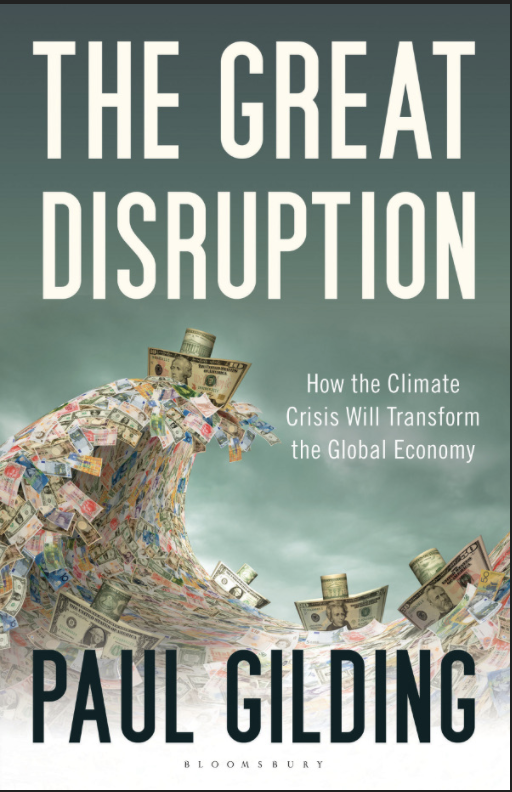What We're Reading: Books that influence our work
We recently asked CEC’s Staff, Board, and Partnership Council about their role as thought leaders in the Santa Barbara community, asking what books, articles, films, apps, podcasts, and other multimedia are influencing their work.
CEC Board President/CEO Dave Davis is reading The Great Disruption, a sobering account of the current and future challenges that humanity faces. Author Paul Gilding writes that our efforts to avoid climate change are insufficient and that we are now past the point of avoiding global catastrophe. Instead, we must prepare for the imminent impact of volatile food and energy prices, drastic ecological shifts, and mass suffering due to resource depletion. But although Dave questions Gilding’s optimism “that our fractured society is up to meeting the seriousness of the challenges we may face,” he was struck by Gilding’s confidence in human resilience and adaptability.
CEC Partnership Council Krista Harris recently finished renowned gardening and food writer Michael Pollan’s latest book, Cooked: A Natural History of Transformation, which explores the four elements of earth, fire, water, and air, and their capacity to transform nature into food. At the top of the New York Times bestseller list, the book explores anthropology, history, science, and philosophy – and how the act of cooking could save us from energy-intensive processed food. Krista — who is the editor and publisher of Edible Santa Barbara and is hyperaware of the food industry and processes — comments that “Cooking is a simple thing that so many people have drifted away from, instead turning to frozen and pre-packaged food.” She resonated with the book and recommends it to all who are interested in improving their health, our food system, or the environment.


CEC Board Member Karl Hutterer is making his way through Iain McGilchrist’s 608-page behemoth on the vast differences between the right and left hemispheres of the human brain and their roles in shaping western culture. Twenty years of research culminates in The Master and His Emissary: the Divided Brain and the Making of the Western World — a discussion on the influence of neurology and psychology in every part of culture from philosophy to art to anthropology. Karl explains his desire to read the book as a curiosity to better understand why humans “behave so strangely.” He ponders humanity’s historic tendency to veer away from rationality, hoping “this book may explain a great deal about the conundrum of ‘climate change’ and why, for instance, some people even would like to increase the amount of carbon dioxide in the air.”
CEC Donor Relations Manager Kathi King recently read Alan Weisman’s The World Without Us. Weisman’s imagination and research provide a nonfiction account of what would happen to the earth if all humans simply disappeared. Kathi calls the book “fascinating” and “beautiful” as it expounds globally on every part of human culture. Residential areas would become forests, and subway tunnels would become rivers. Mount Rushmore would be one of longest preserved human artifacts, while abandoned nuclear plants would spew radioactive waste well into the future. Kathi enjoyed the book and reflects, “We have built and created and done amazing things, but we have definitely left a footprint that far outpaces anything that’s ever been here.”

